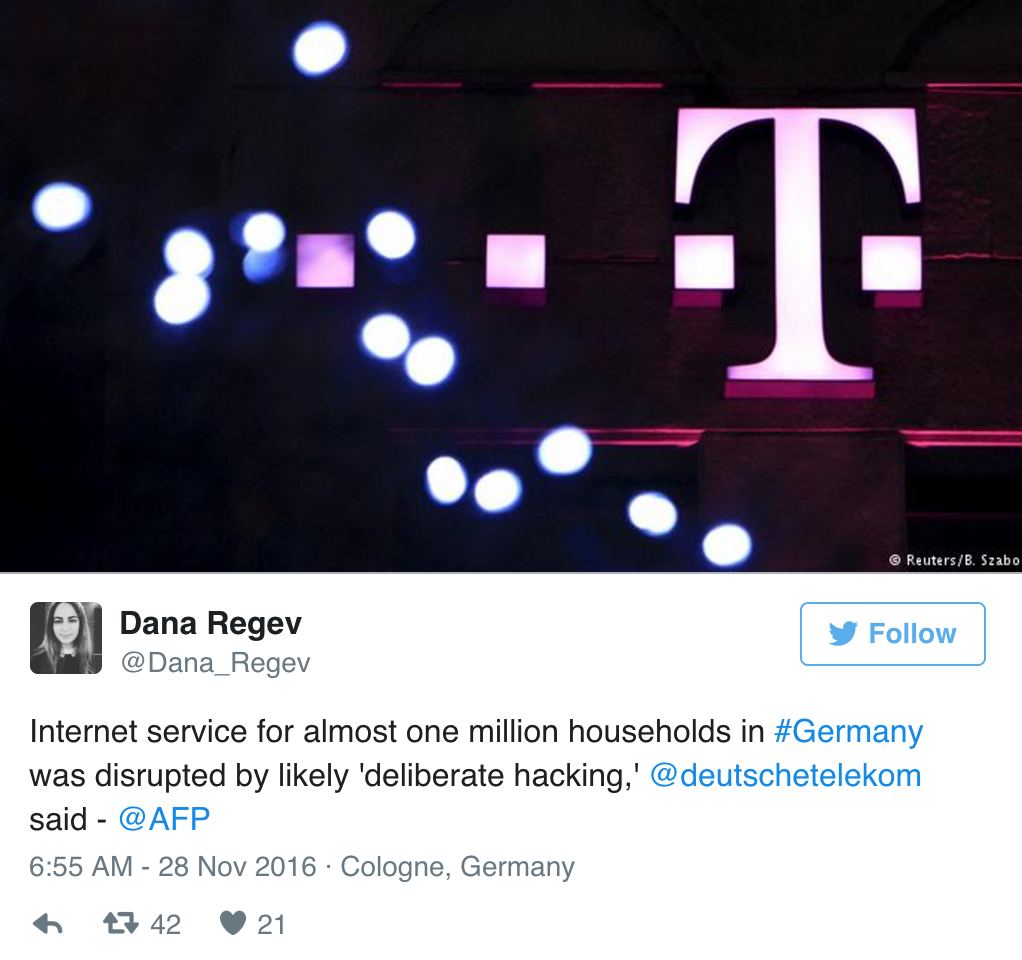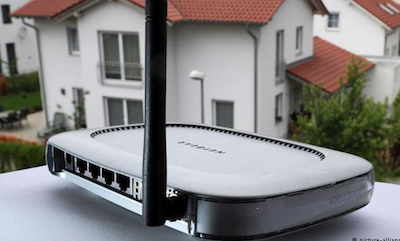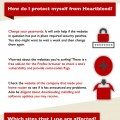Typically we see large organizations targeted for cyber attacks however home users are also at risk. Dw.com posted about how 1 million household routers were knocked offline in Germany due to suspected cyber attacks (original post found HERE).
Even “smart toilets” are now a possible targets according to the national vulnerability database (details found HERE). They state “The LIXIL Corporation My SATIS Genius Toilet application for Android has a hardcoded Bluetooth PIN, which allows physically proximate attackers to trigger physical resource consumption (water or heat) or user discomfort.”. Discomfort means the toilet becoming hot, shooting water bidet style up you rear, playing loud music, etc. Serves those people right buying a toilet with speakers.
Anyway … here is the article about the German router take down ….
A suspected cyberattack has disrupted internet service for nearly a million households in Germany. Only specific models of routers were affected, leading technicians to suspect a deliberate hack.
About 900,000 internet customers experienced severe internet outages over the weekend in what Deutsche Telekom has blamed on an apparent indiscriminate cyberattack.
“We believe that influence was exerted on the routers from outside,” an unnamed company spokesman told the AFP news agency, noting that malware had been installed on routers that prevented them from connecting to the company’s network.
The telecom giant did not provide details of which models of router – hardware that mediates the transmission of data packets on the internet and elsewhere – were affected. Customers have been advised to disconnect their routers if they suspect that they were targeted. Government spokesman Steffen Seibert told reporters that official computers were not affected by the apparent hack. “What this incident shows is how important and right the attention is that the German government, especially the Interior Ministry, have put on exactly this topic of cybersecurity and securing our infrastructure in the digital realm,” Seibert said Monday. He added that his aim was to “comprehensively reassure” the German public of the state’s ability to continue its daily functions despite the disruptions.
Government spokesman Steffen Seibert told reporters that official computers were not affected by the apparent hack. “What this incident shows is how important and right the attention is that the German government, especially the Interior Ministry, have put on exactly this topic of cybersecurity and securing our infrastructure in the digital realm,” Seibert said Monday. He added that his aim was to “comprehensively reassure” the German public of the state’s ability to continue its daily functions despite the disruptions.
Germany has been the target of multiple cyberattacks in recent years. In September, several political parties received emails which purported to be from NATO headquarters but which in fact contained a link that installed spying software on their computers.




